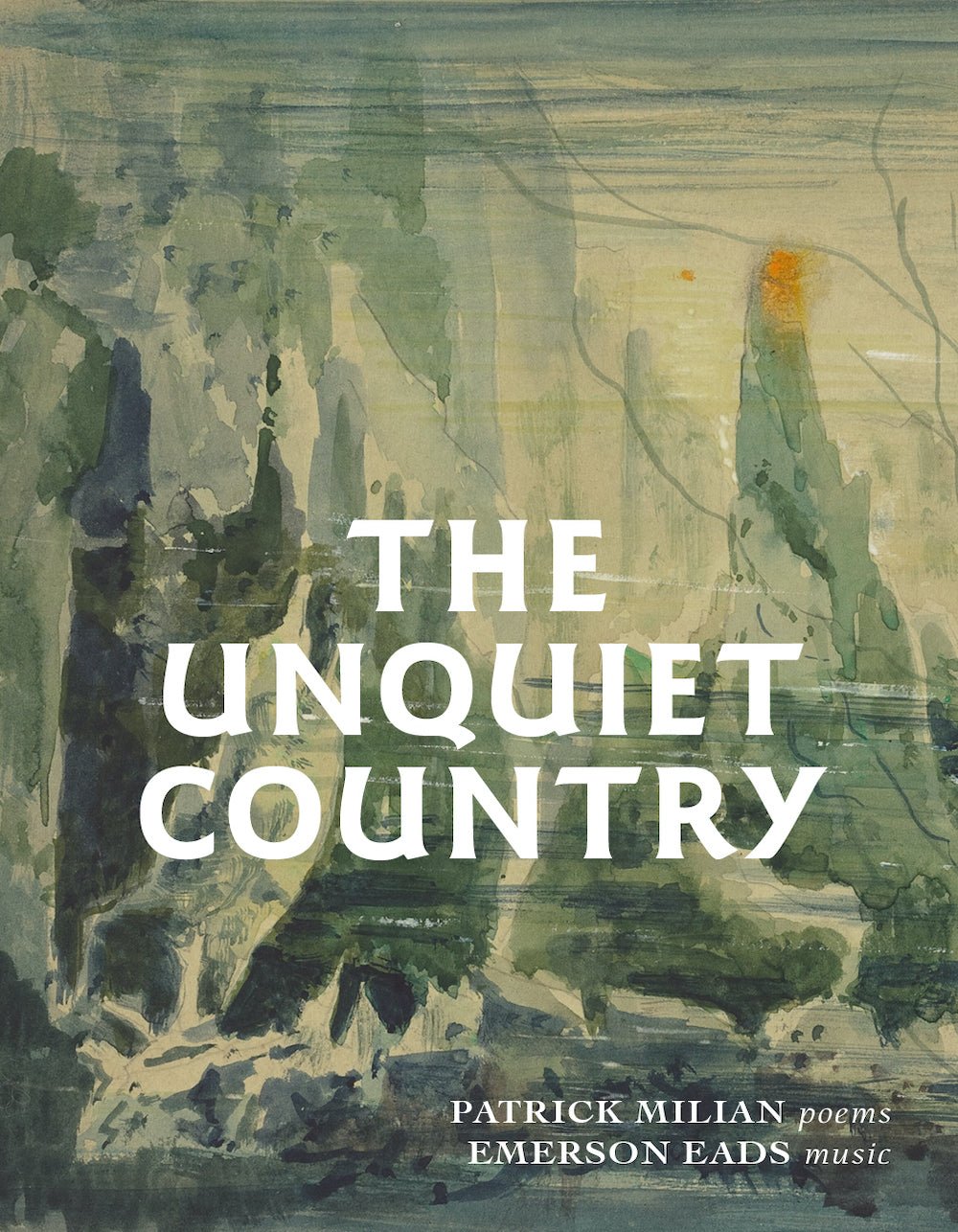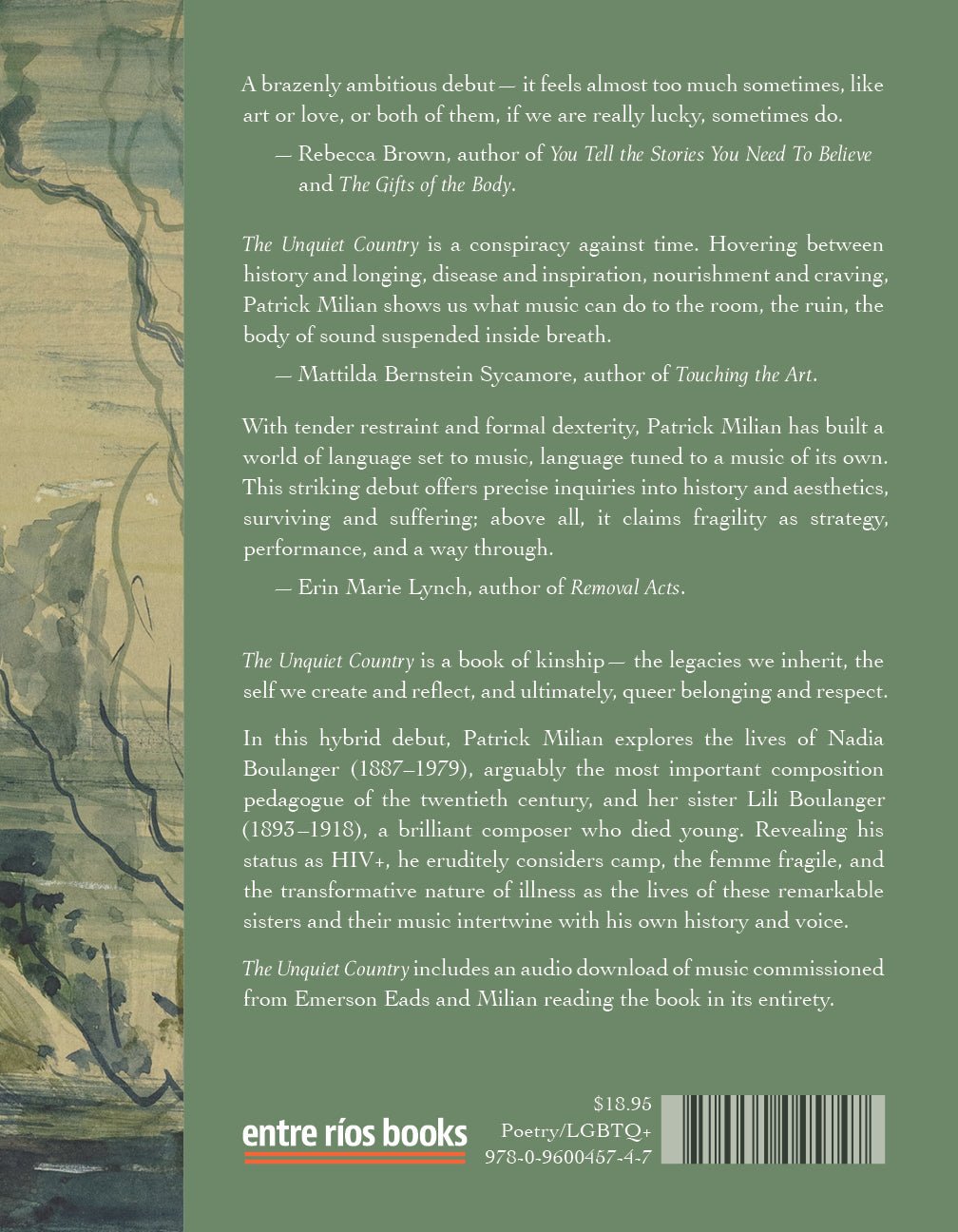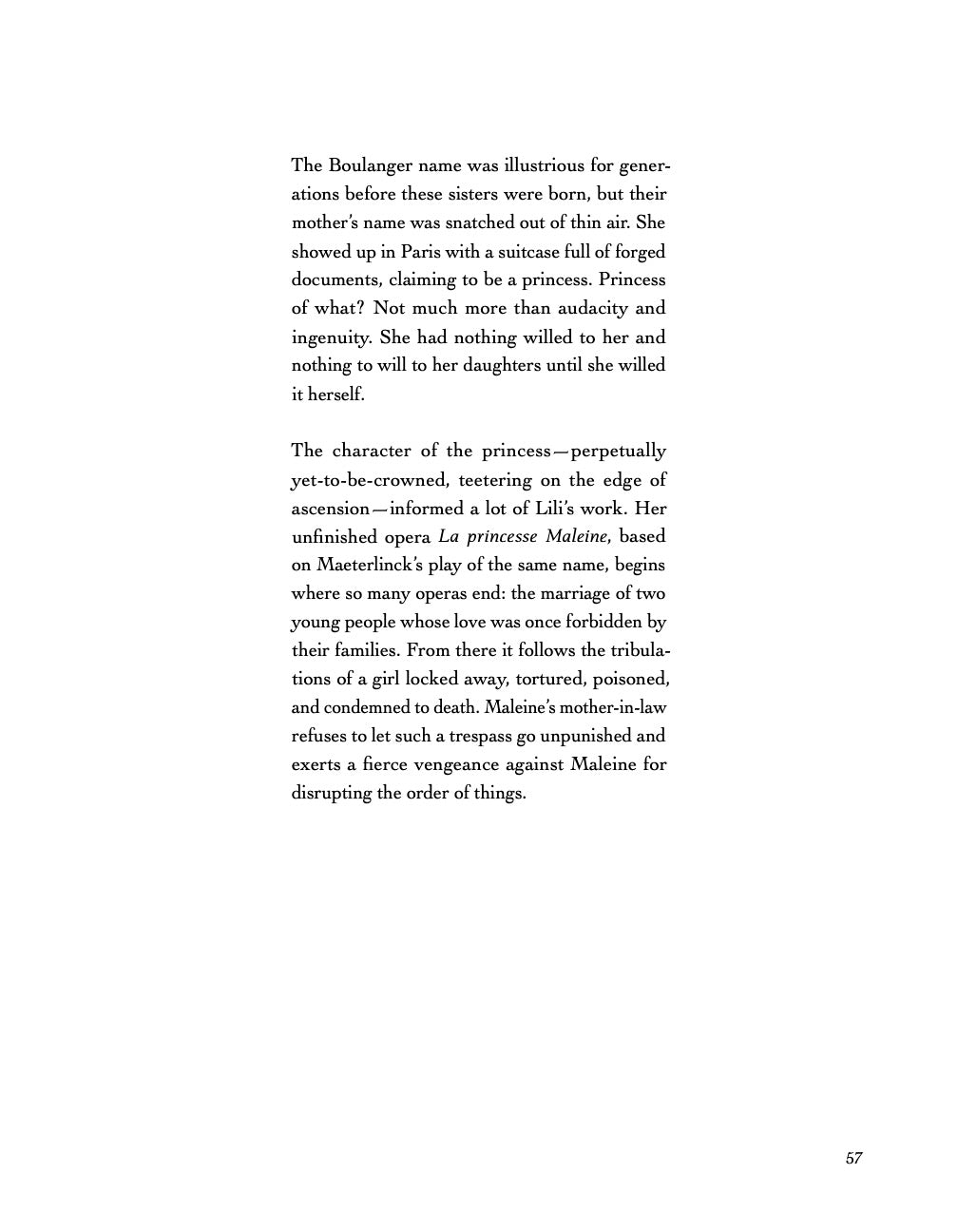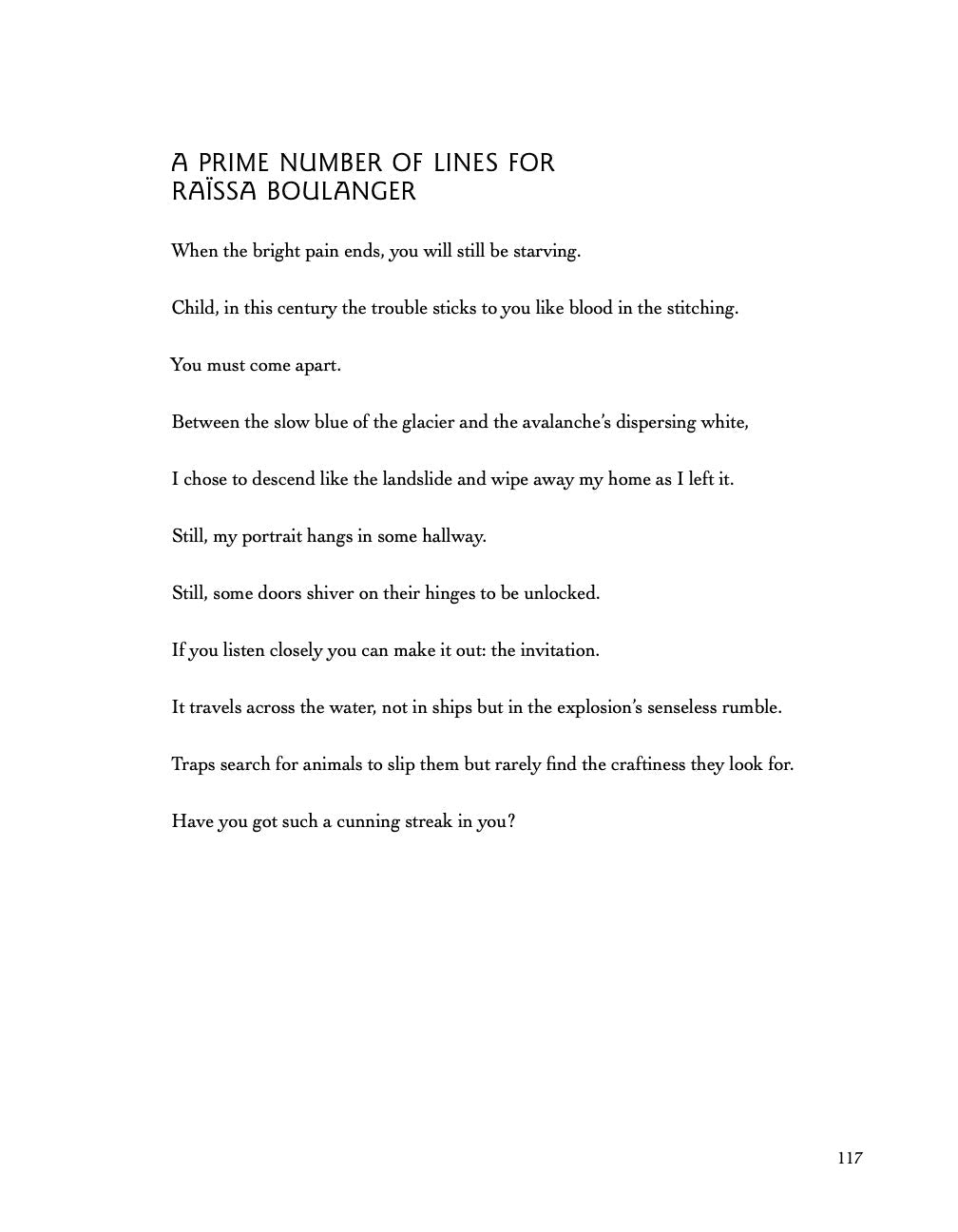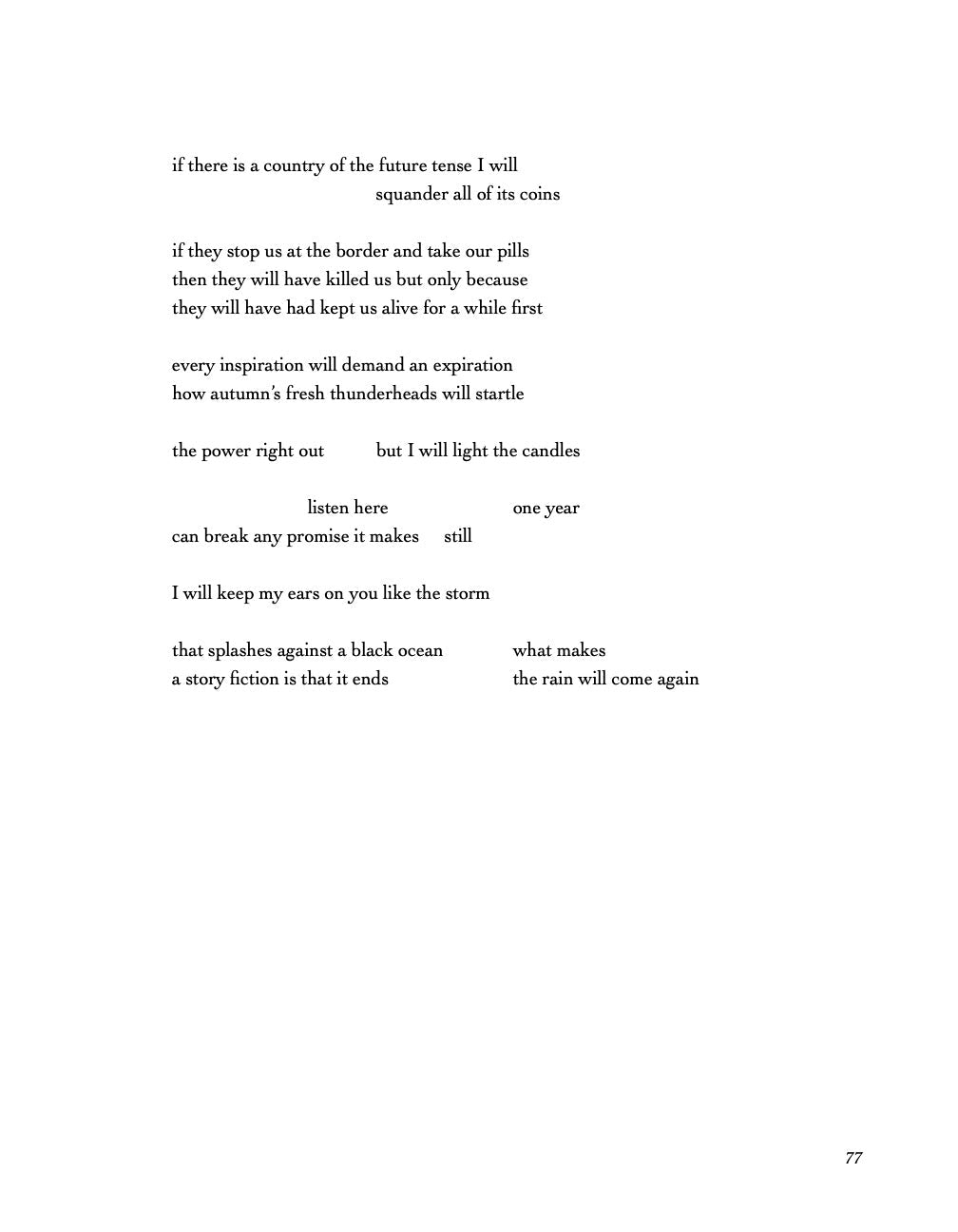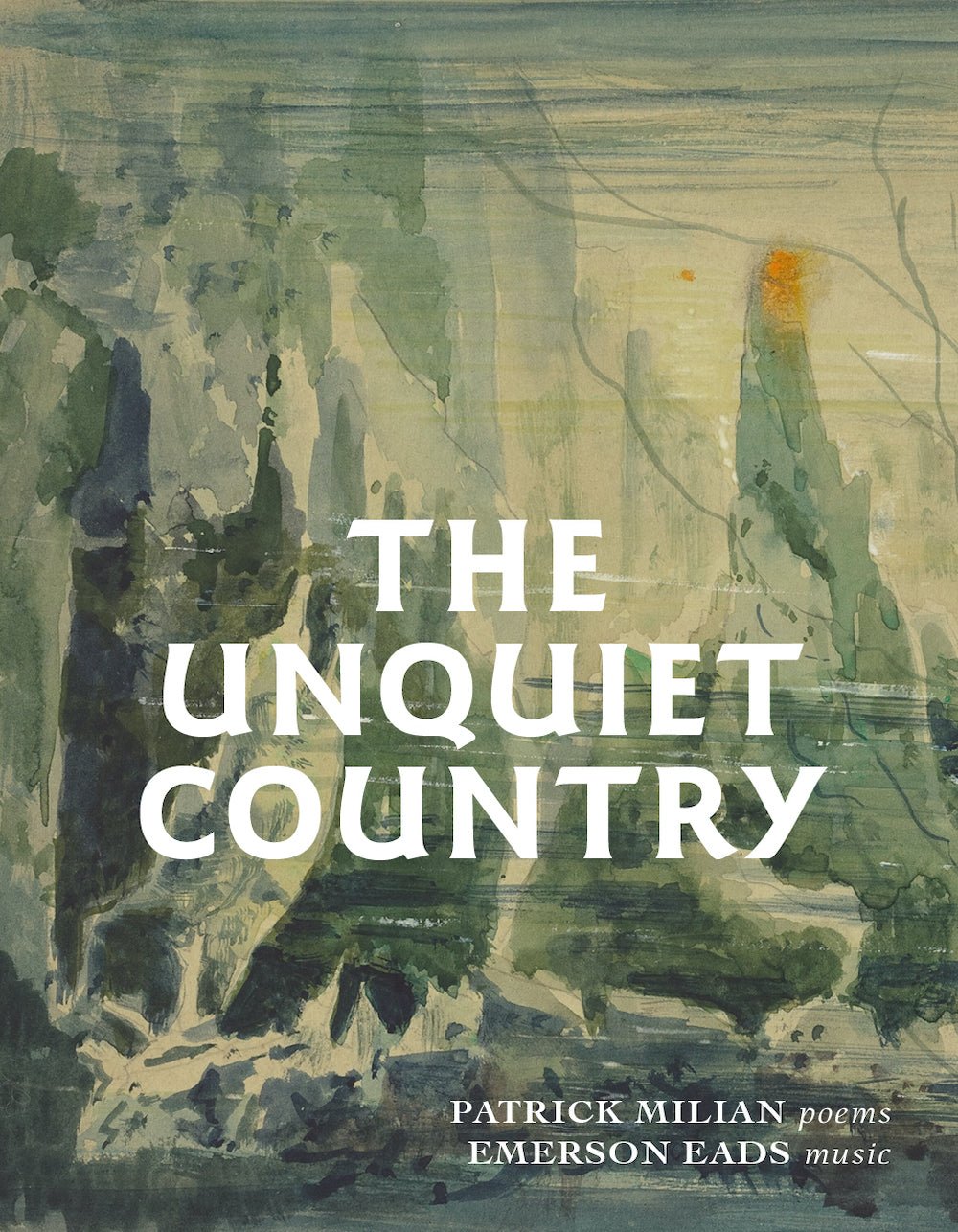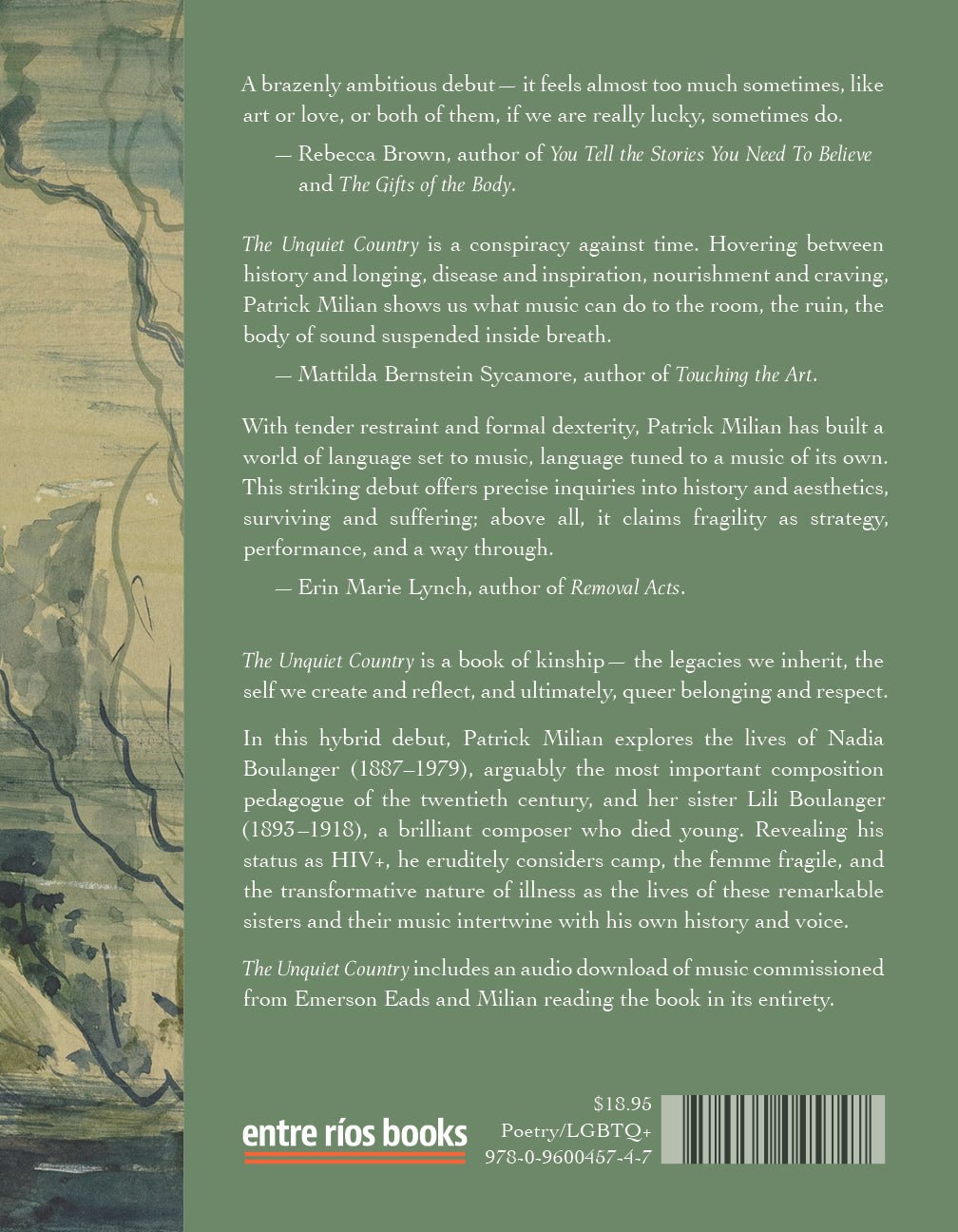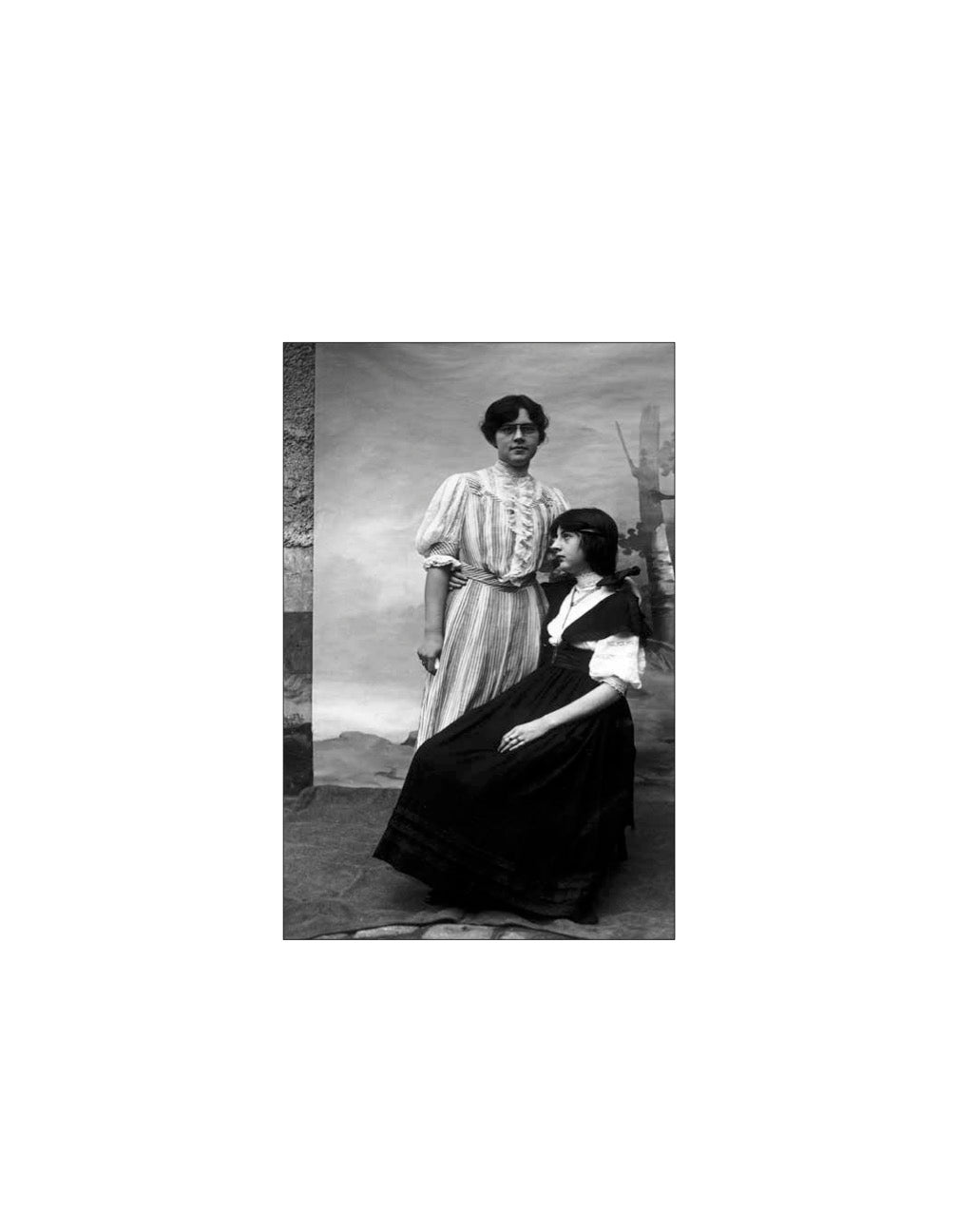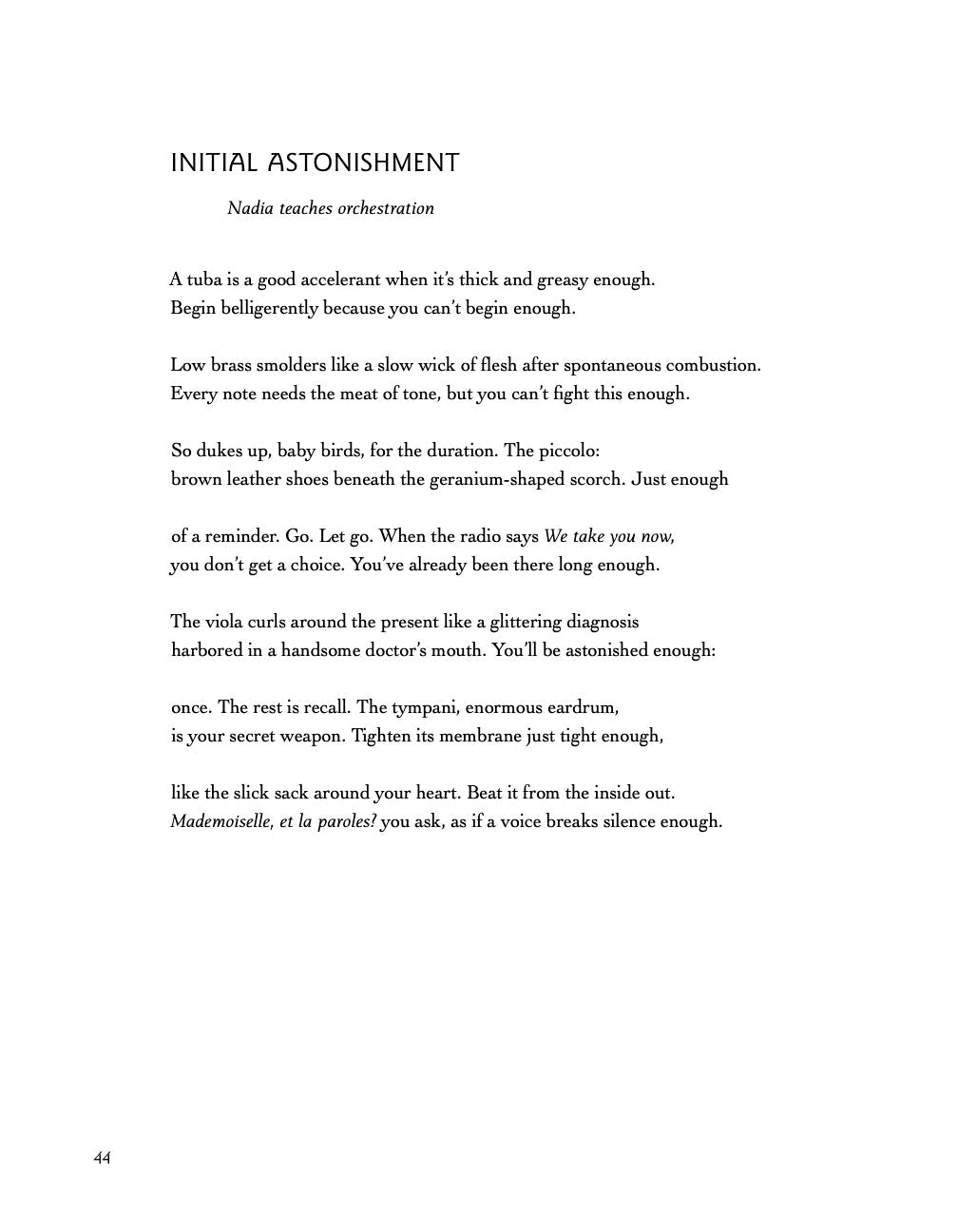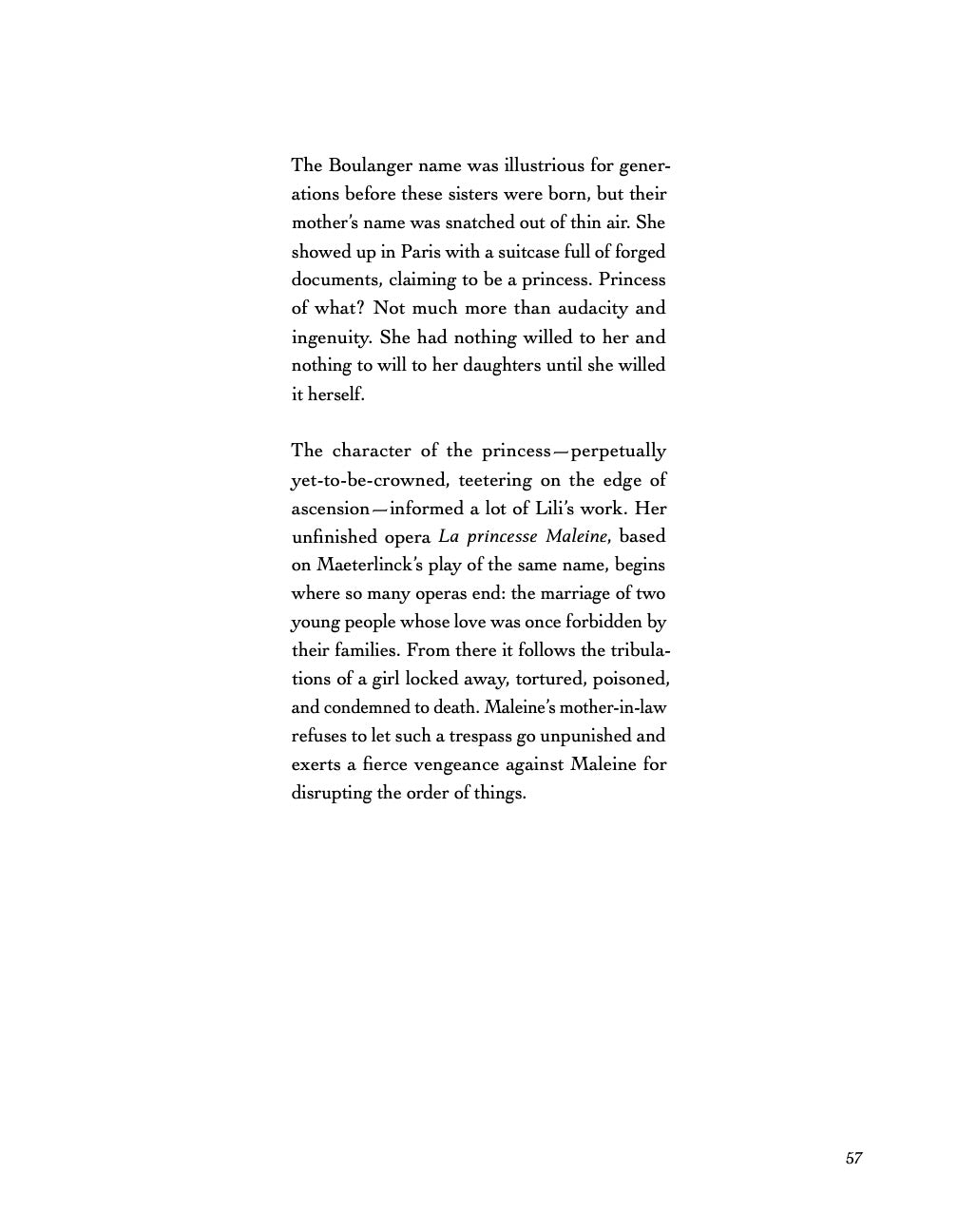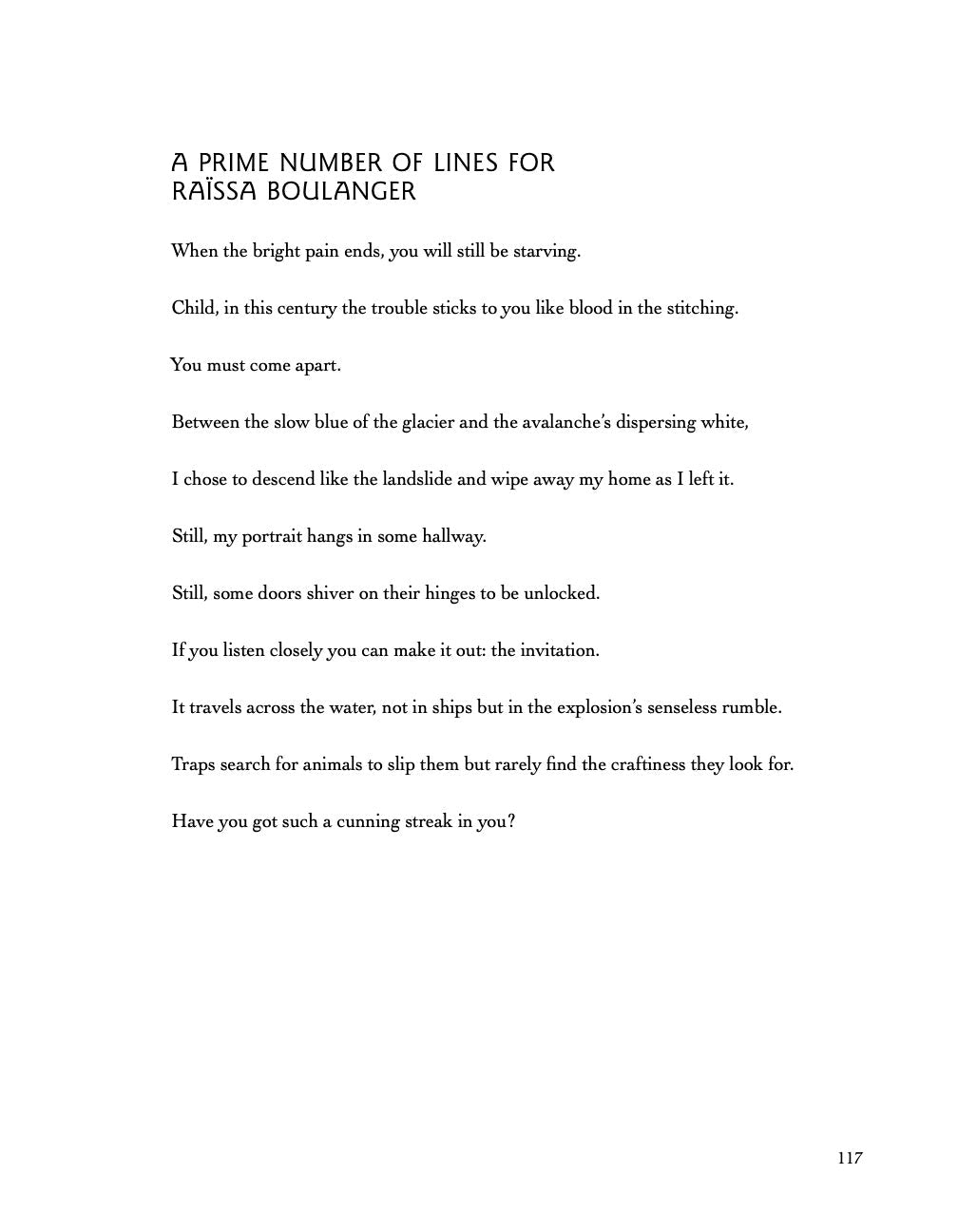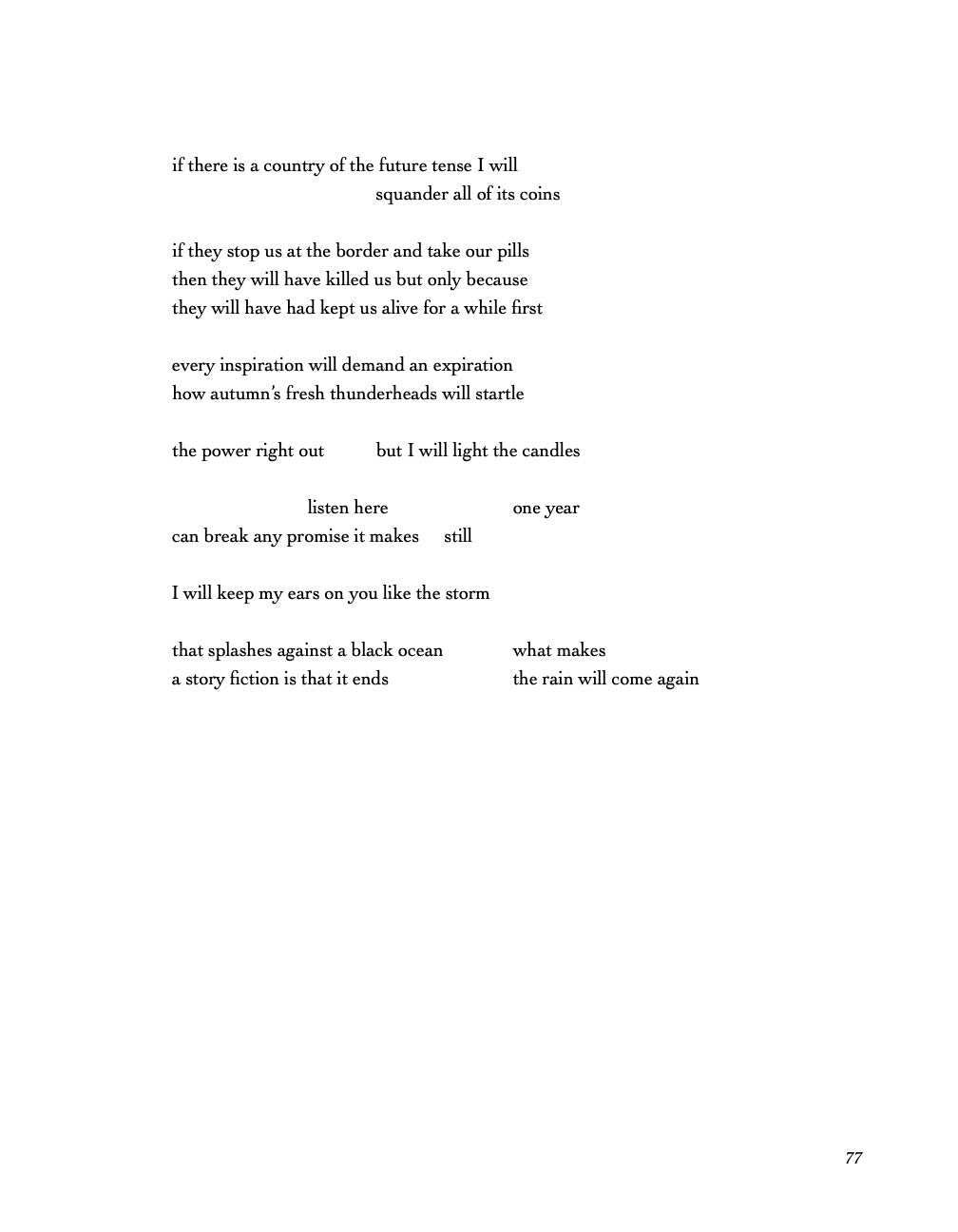The Unquiet Country
The Unquiet Country
Patrick Milian
Music by Emerson Eads
Couldn't load pickup availability
A brazenly ambitious debut— it feels almost too much sometimes, like art or love, or both of them, if we are really lucky, sometimes do.
— Rebecca Brown, author of You Tell the Stories You Need To Believe and The Gifts of the Body.
The Unquiet Country is a conspiracy against time. Hovering between history and longing, disease and inspiration, nourishment and craving, Patrick Milian shows us what music can do to the room, the ruin, the body of sound suspended inside breath.
— Mattilda Bernstein Sycamore, author of Touching the Art.
With tender restraint and formal dexterity, Patrick Milian has built a world of language set to music, language tuned to a music of its own. This striking debut offers precise inquiries into history and aesthetics, surviving and suffering; above all, it claims fragility as strategy, performance, and a way through.
— Erin Marie Lynch, author of Removal Acts.
Named one of the "Best Books out of the PNW in 2024" by Seattle's The Stranger!!!
The Unquiet Country is a book of kinship— the legacies we inherit, the self we create and reflect, and ultimately, queer belonging and respect.
In this hybrid debut, Patrick Milian explores the lives of Nadia Boulanger (1887–1979), arguably the most important composition pedagogue of the twentieth century, and her sister Lili Boulanger (1893 –1918), a brilliant composer who died young. Revealing his status as HIV+, he eruditely considers camp, the femme fragile, and the transformative nature of illness as the lives of these remarkable sisters and their music intertwine with his own history and voice.
The Unquiet Country includes an audio download of music commissioned from Emerson Eads and Milian reading the book in its entirety.
Audio
We post selections from our books on SoundCloud, but a full reading of The Unquiet Country and the complete set of music from Emerson Eads to download can be found on our audio page.
Arresting poetry and truly beautiful music . . . in ‘A Prime Number of Lines for Lili & Nadia Boulanger’, Bach-prelude-like beginnings go on strange and enchanting voyages, and creativity burns in percussive dissonances and shifting meters. The second song for Raïssa Boulanger is a wide-ranging dirge of immense power.
– Susan Youens, author of Hugo Wolf: The Vocal Music and Retracing a Winter’s Journey: Franz Schubert’s “Winterreise”.
Share
